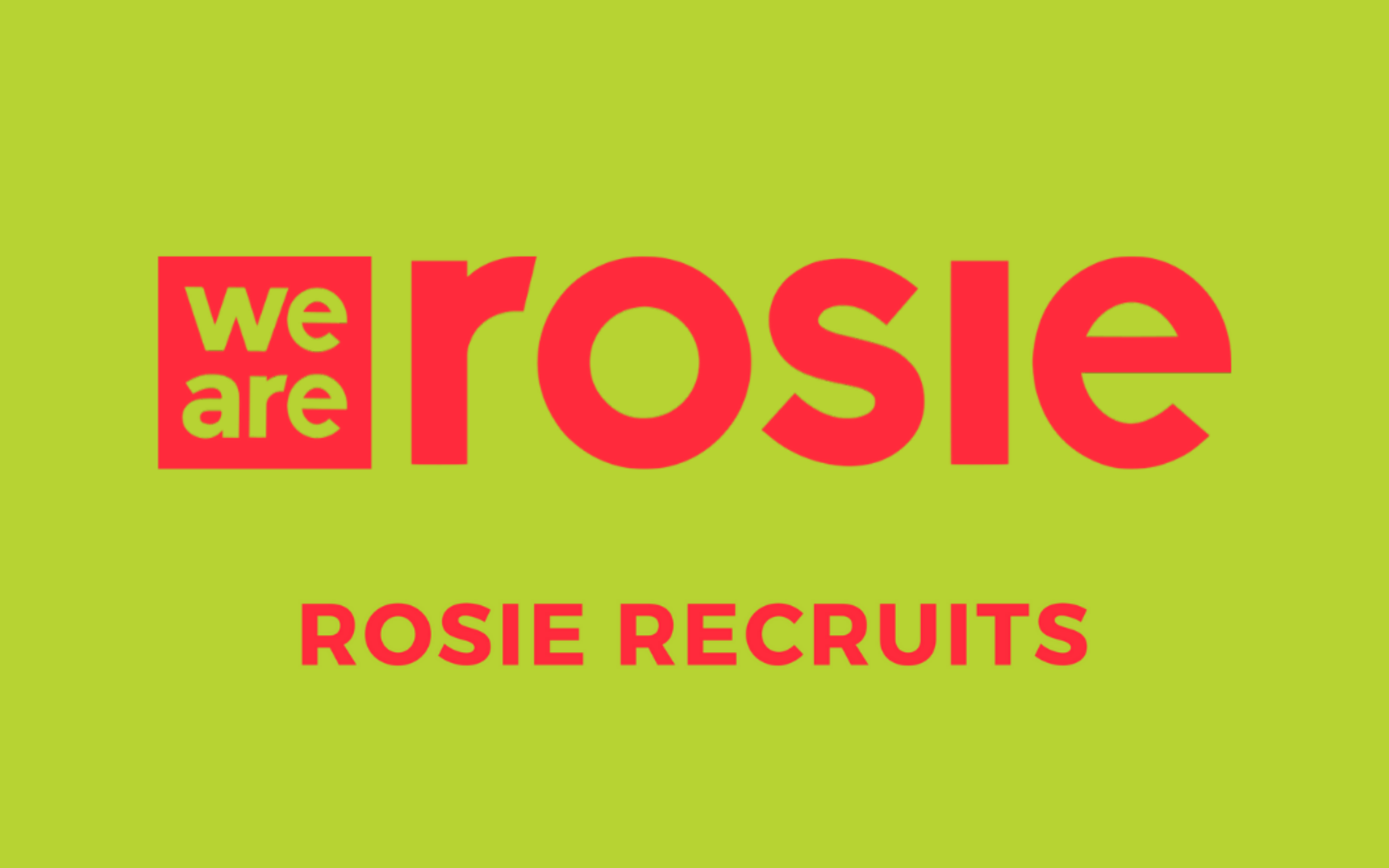Originally posted on Adweek by Doug Zanger, June 17, 2020.
It’s no secret that, especially with continued fallout from the Covid-19 pandemic, agencies have had to make tough decisions about staffing, with layoffs an unfortunate and common occurrence. Additionally, the general move to more remote work, which could be a permanent change in some form, has brands and agencies determining the best way to approach talent.
While there are several options to staff an agency, especially through internal recruiting teams, bringing on a full-time employee—for both a brand or agency and the talent—may not be most prudent as conditions in the marketing industry shift so rapidly. Yet companies will eventually need this kind of staff, and more and more displaced workers desire full-time employment.
In response to feedback from its talent and partners and seeing its own structure morph, successful flexible talent platform We Are Rosie is responding to the changes by launching Rosie Recruits, a new recruiting practice. The temp-to-full-time program lets brands and agencies work with Rosie’s 5,000-deep pool of marketing talent for six months. If the relationship is fruitful, it can be converted from temporary to permanent without any additional costs, commissions or fees, a common practice in the world of recruiting.
The main impetus for the addition of Rosie Recruits—the We Are Rosie portfolio includes Rosie Talent (for individual staffers) and Rosie Teams (to provide project-based teams for brands and agencies)—was a significant increase in interest from displaced agency and brand employees. According to We Are Rosie founder Stephanie Nadi Olson, since the pandemic began, she has seen an uptick of about 200 people joining the community each week, with most indicating a preference for permanent work.
“We didn’t have to change our business model much with Covid-19 because we’ve always been more nimble and agile,” she said. “But now, all of a sudden, we had a ton of talent in our community—and around 1,500 people want full-time, traditional employment in the marketing space.”
Paramount to Olson is ensuring that the essence of We Are Rosie remains robust—serving the entirety of marketing, especially CMOs—while developing a product that can serve a new and emerging audience. All Rosies are paid weekly, receive insurance coverage and are part of a high-touch community. The model has proven to be highly successful, and moving into the recruiting space is not necessarily daunting to Olson, who bootstrapped We Are Rosie from its inception in spring 2018.
“We’re coming into it as a bit of an outsider. But that’s no different than anything else that we’ve ever done here. And there is a place for everybody,” said Olson, also noting that agency talent and recruiting departments, in particular, are often understaffed.
“I think that [We Are Rosie] and Stephanie do a great job of taking risks that are manageable,” said Stephen Wakeling, CEO and founder of workforce communication platform Phobio. “We were early adopters of their services, and they organically sprout [from] the same mission, which is healthy.”
One other critical component is the more urgent prioritization of diverse talent, especially at agencies. We Are Rosie has emphasized the development and empowerment talent from a wide range of backgrounds from its inception. According to the platform’s inaugural Rosie Report on the future of work, 40% of people on the platform come from diverse backgrounds.
“Brands and agencies understand our commitment to diversity, inclusion and equity within our ecosystem,” said Olson, an Adweek Creative 100 honoree. “Working with us is really valuable right now, and I don’t think that any other competitors in the space can authentically live and breathe that. There’s a new call to action, and I don’t know that we’ll have an opportunity to impact this industry as much as at this moment. It’s game time, and we’ll see who shows up.”
